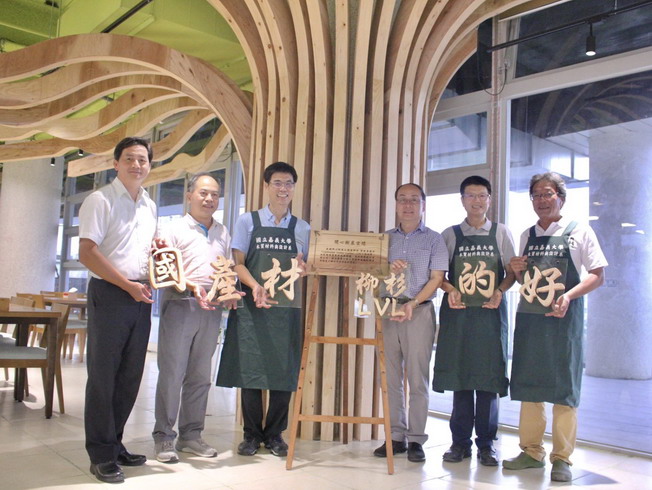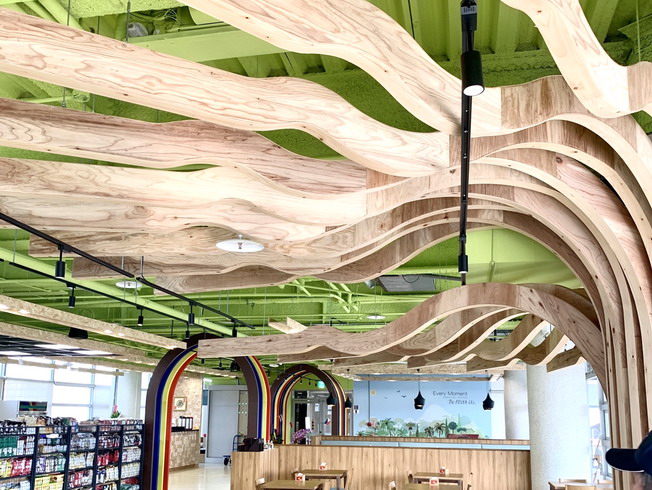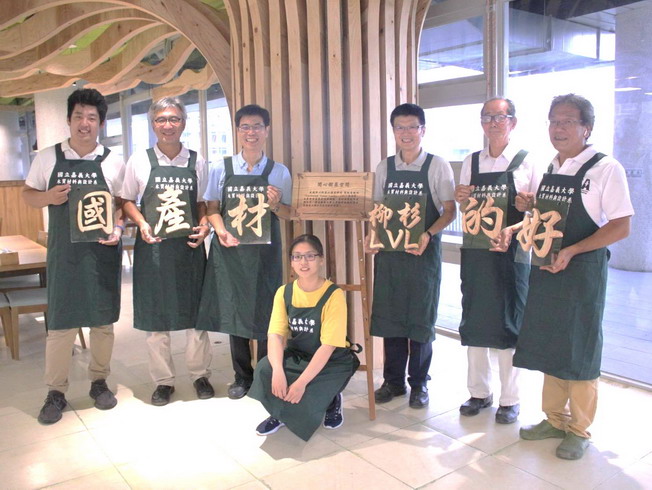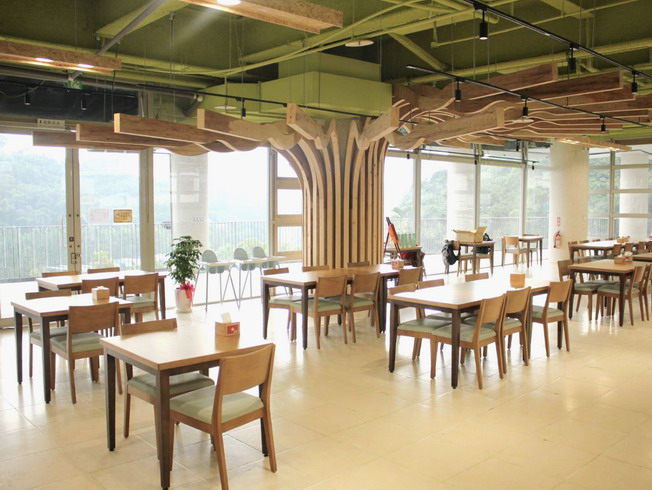 The Department of Wood Materials and Design, National Chiayi University, and the Chiayi Forest District Office, Forestry Bureau, have been joining forces to enhance collaboration between academia and industries, and use and development of domestic cedar. After holding “Laminated Veneer Lumber Creative Products Presentation” last March, they have been working together with Dick Engineering Company and Wand Tsai Industrial Co., Ltd. to form a design, mass-production and decoration team. “Happy Tree Exhibition Space” was established with laminated veneer lumber (LVL) of domestic cedar as materials for space design and decoration, complete with the concepts of both exhibition and environmental resources.
The Department of Wood Materials and Design, National Chiayi University, and the Chiayi Forest District Office, Forestry Bureau, have been joining forces to enhance collaboration between academia and industries, and use and development of domestic cedar. After holding “Laminated Veneer Lumber Creative Products Presentation” last March, they have been working together with Dick Engineering Company and Wand Tsai Industrial Co., Ltd. to form a design, mass-production and decoration team. “Happy Tree Exhibition Space” was established with laminated veneer lumber (LVL) of domestic cedar as materials for space design and decoration, complete with the concepts of both exhibition and environmental resources.Han Qian Lin, Dean of the College of Agriculture, NCYU, indicated that the Happy Tree Exhibition Space was founded thanks to the Forestry Bureau Chiayi Forest District Office’s funding and provision of the major materials – domestic cedar. The cedar LVL were mass-produced by Wand Tsai Industrial into decoration materials. The team of the NCYU Department of Wood Materials and Design produced different components by making full use of the equipment and design capacity of the wood processing plant on campus. The Happy Tree Exhibition Space is a culmination of an intricate design featuring a variety of components. It bears witness to the cedar LVL’s innovative and productive quality, and unique properties such as large coverage and better-than-wood stability. In addition to the obvious natural texture as spring and autumn wood, it also boasts straight geometrically parallel lines. Visually, the heart- and sapwood changes from dark reddish brown to yellowish white in form and color. It not only serves as space interiors, supports and natural ornaments, but as base materials for interior decoration, among others.


